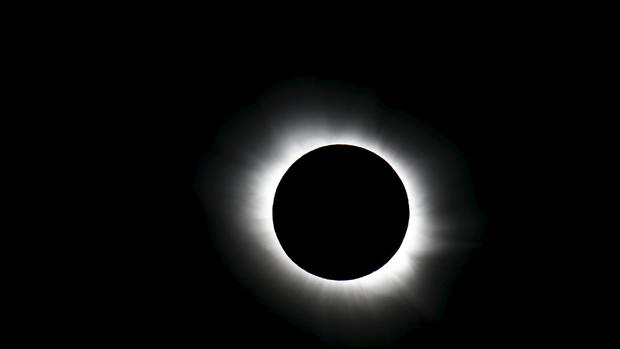How to see the only total solar eclipse of 2016
Some parts of the globe will be in for a rare celestial sight on March 8-9 -- that's when the year's only total solar eclipse will take place.
A solar eclipse occurs when the moon passes right smack in between the Earth and the sun, temporarily turning day into night.
The total eclipse will only be visible on the Indonesian islands of Sumatra, Borneo and Sulawesi, and in parts of Pacific Ocean, according to NASA. Other parts of Southeast Asia, northern and eastern Australia, Hawaii and part of Alaska will get a partial eclipse.
But thanks to technology, people around the world can see it through a live video feed on their computers. There will be a webcast of the eclipse from Micronesia beginning at 8 p.m. ET Tuesday at exploratorium.edu or on NASA TV. The period of total eclipse can be seen from 8:38 to 8:42 p.m ET.
For those viewing on the ground, it's dangerous to look directly at a solar eclipse because powerful rays can damage the retina and lead to vision loss. Protective goggles (not just standard sunglasses) or a pinhole camera are required for safe viewing.
NASA says this year's eclipse is also notable because scientists will be using it to test out technology they say will be pivotal for studying another eclipse next year over the United States. On August 21, 2017, a total solar eclipse will move straight across the center of the U.S. at midday. After that, there won't be another total solar eclipse visible to people in this country until 2045.
These events are helpful for researchers who want to get a clearer understanding of the sun itself. During a total solar eclipse, you can make out the sun's corona, its faint outer atmosphere. Scientists are usually unable to make out this area given the sun's glaring brightness. Knowing more about the corona is important as solar flares and coronal mass ejections, which can affect satellites and power grids, burst forth from this area.

